
From absolutism to democracy in Bhutan: 50 years of Swiss support
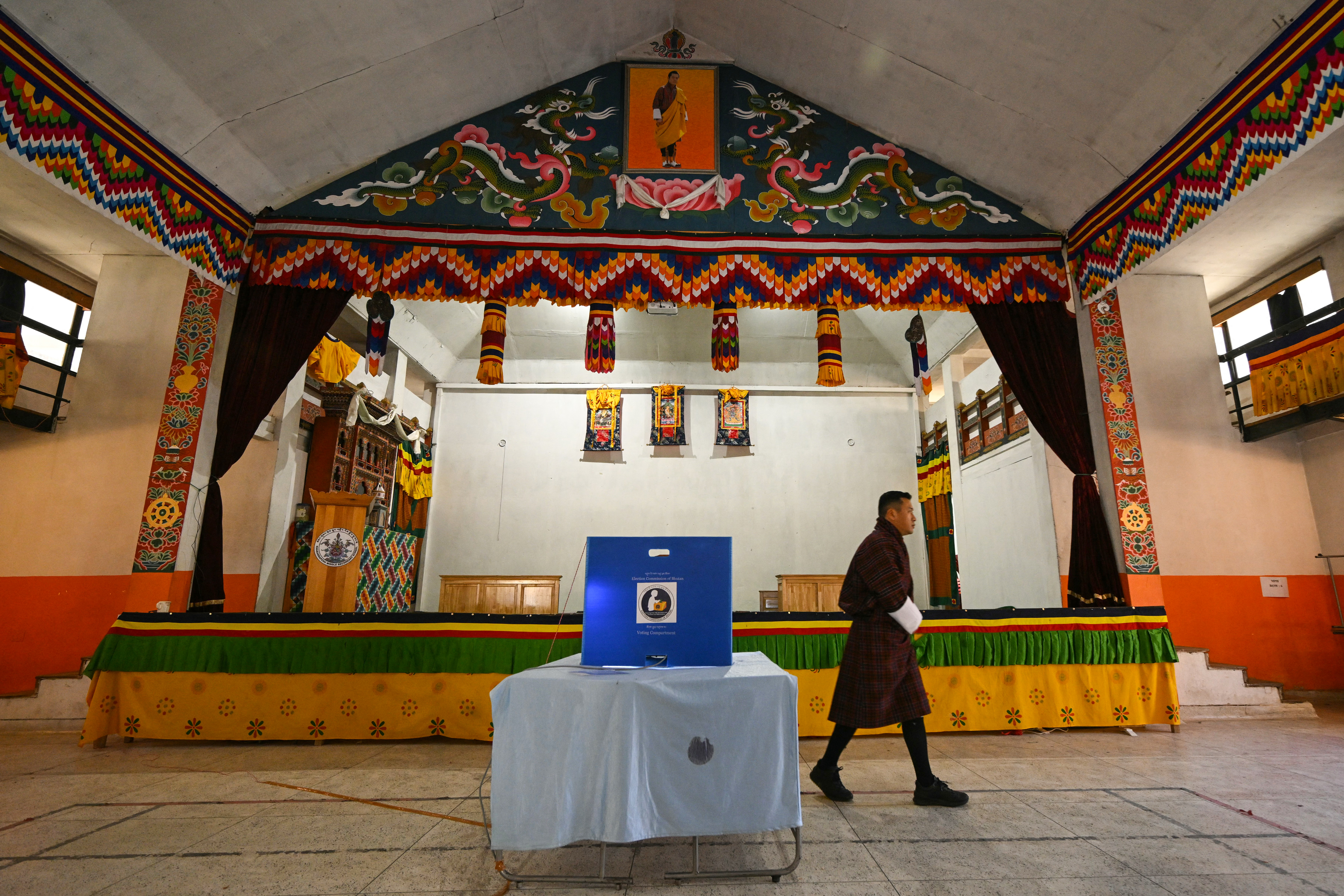
In 1975 Helvetas was the first international development organisation to work in Bhutan. It now plans to withdraw from the Himalayan country. Many view this as the next chapter in a success story. Helvetas’s local employees agree.
Cooperation between Switzerland and Bhutan blossomed from a friendship. In the 1940s the daughter of Swiss industrialists got to know a young Bhutanese woman, who would later become the king’s wife.
This friendship brought the Swiss industrialist couple to Bhutan in 1952. There the king asked them for help in modernising the country. Experts from Switzerland soon travelled to the Buddhist kingdom, to advise the population on improving agriculture and building health centres.
The range of projects grew ever wider, and in 1975 the Swiss industrialists decided to hand them over to a professional organisation. They chose Helvetas, an independent Swiss development organisation that was already active in neighbouring Nepal.
‘Special relationship’
Since then, Switzerland has nurtured ties with the small kingdom, in what the Swiss foreign ministry still calls a special relationshipExternal link.

“In the early days, the focus was mainly on education, agriculture and forestry,” says Lionel Giron, regional coordinator for Nepal, Bhutan and Vietnam at Helvetas.
Forests have always played a special role in Bhutan. The kingdom, on the eastern edge of the Himalayas, is 70% wooded. The many trees not only help to keep the climate in balance – Bhutan is also CO2 negative.
In many ways, it was forest management that set the Bhutanese on the path to democracy, at a time when the country was still an absolutist monarchy.
Co-operative approach to forestry
In 1979 the king decided to give the people a greater say in forest management. So Helvetas introduced the concept of community forestry groups. These function very much like cooperatives: the forests are managed by village communities; each household is only allowed to cut down a certain number of trees per year; and what they do not need themselves is sold.
The proceeds go into a community fund, from which the members can draw loans, for instance to pay school fees. Every few years, the profit is distributed among the members.
This concept, which was also supported by the Swiss government and the World Bank, still works well today. More than 600 villages are organised into community forestry groups.
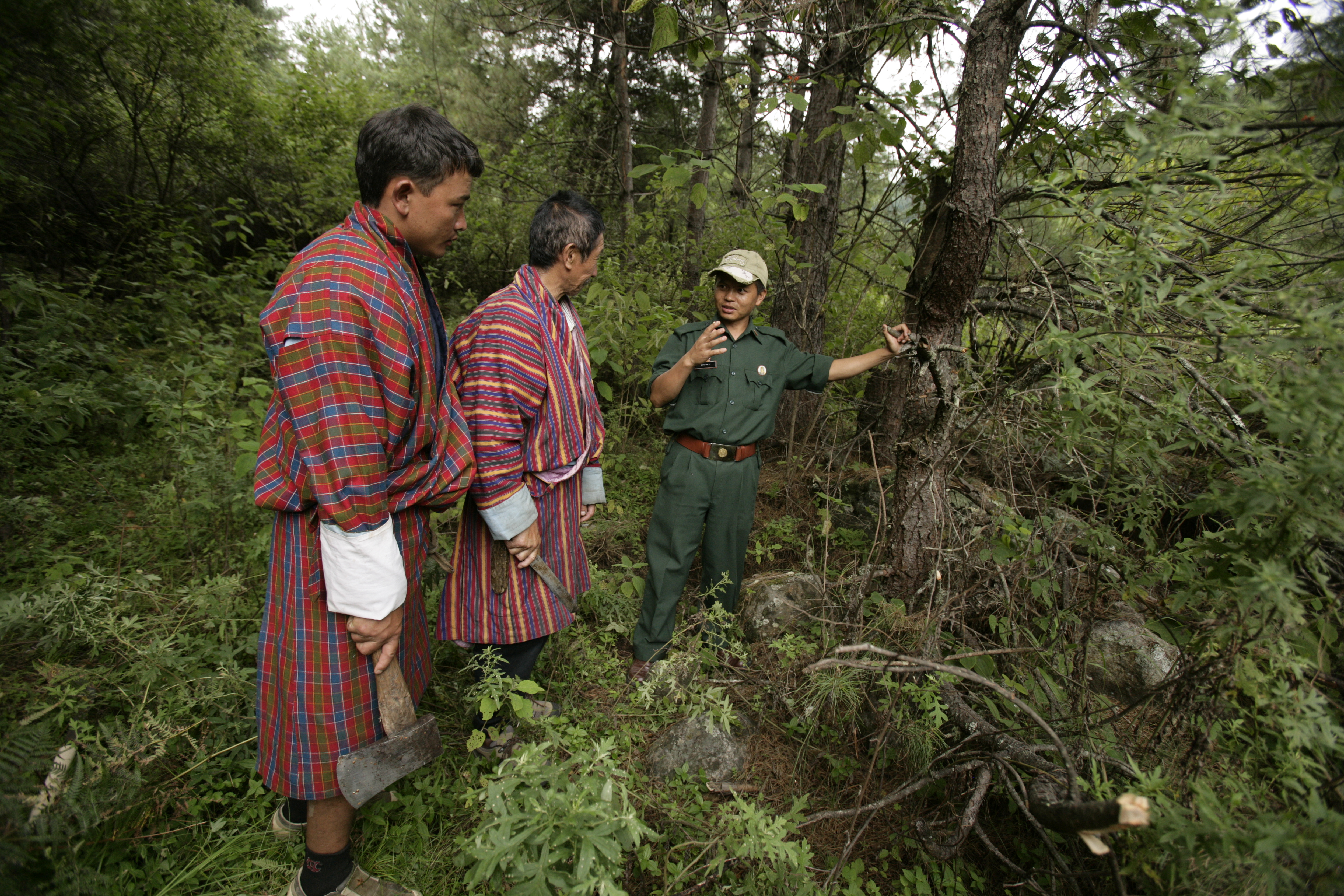
Driver of democracy
As well as coordinating the use of resources, the forestry groups provide a discussion forum for other issues – especially since the start of the transition to democracy. “The forest groups have made a significant contribution to building a vibrant democracy,” Giron explains.
Bhutan’s democracy is one of the youngest in the world. In 2006, when King Jigme Khesar Namgyel Wangchuck replaced his father on the throne, he also inherited the latter’s plans to turn Bhutan into a democracy. Before that, all the strings of power were held by the central government and, at the highest instance, the monarch.
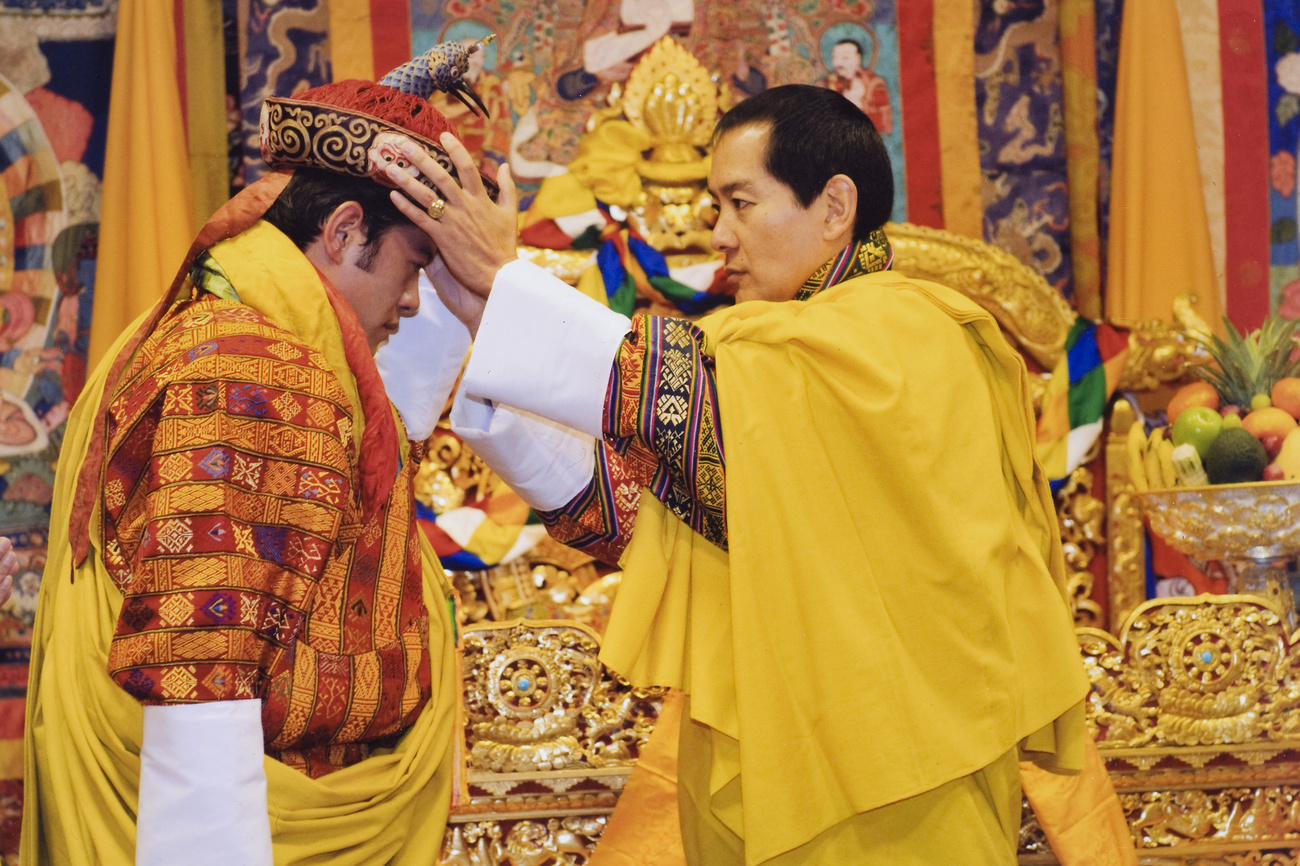
This decision to reform was also linked to the Bhutanese philosophy of gross national happiness, which measures not only economic progress but also the happiness and wellbeing of society. The new king believed that power sharing would bring greater happiness to the people in the long term.
Trust in the king
It cannot be said, however, that Bhutan’s 800,000 inhabitants were clamouring for more participatory democracy, as Bhutan’s country director at Helvetas, Tashi Pem, explains. “They revered their king and were rather concerned about what things would be like when he no longer had decision-making power.”
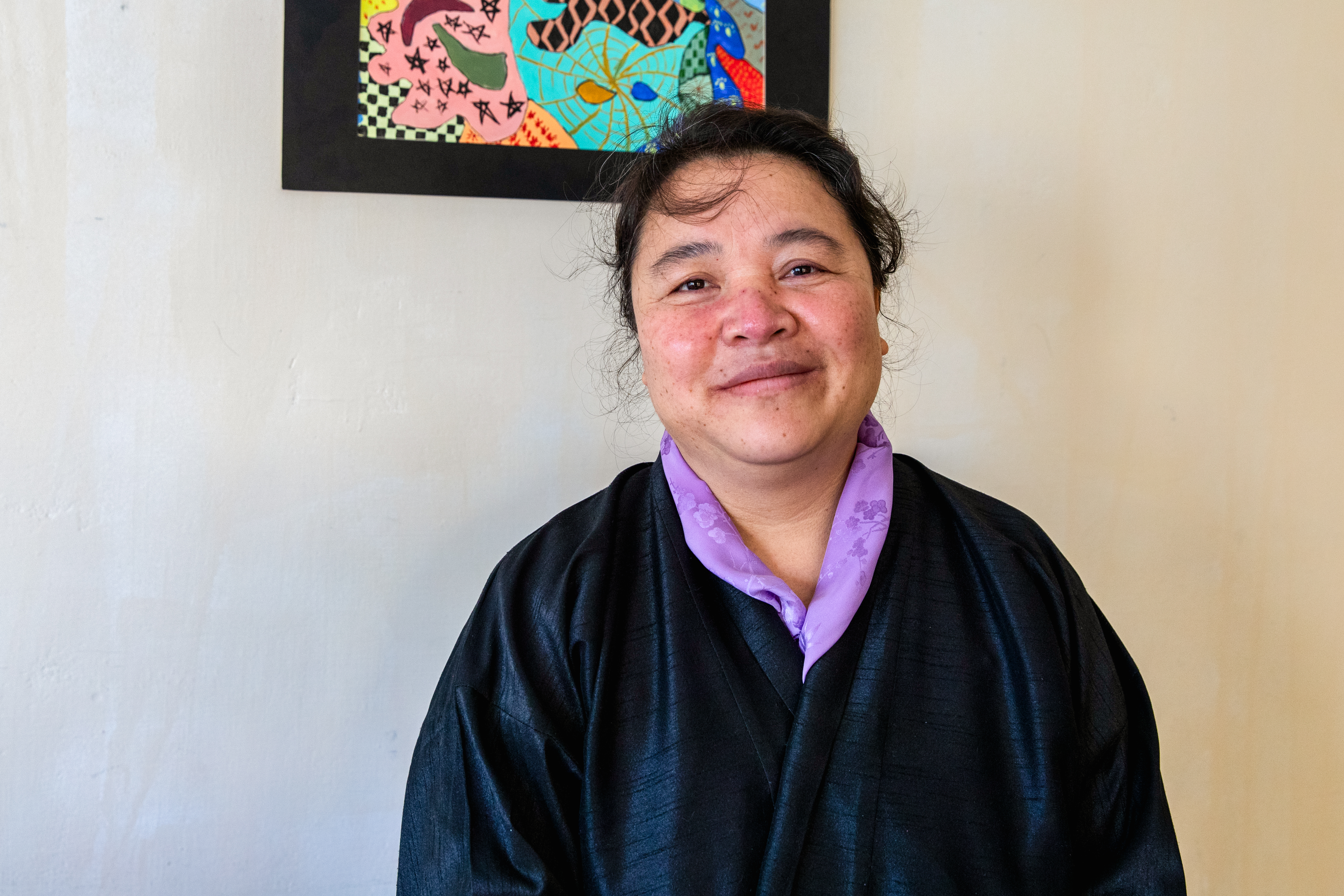
But they had faith in their king and accepted his decision. A bicameral parliament was elected for the first time in 2008. Since then, there have been four parliamentary elections, followed by peaceful transfers of power. The most recent election took place at the beginning of this year, with a voter turnout of around 66%.
But how could democratisation work in a country which revered the king as the sole sovereign? On this, Switzerland’s advice was also sought.
The Swiss Agency for Development and Cooperation (SDC), which was funding many of the development projects, had actually planned to pull out of Bhutan in the 2000s. But in 2008 Bhutan’s central government asked it for support in the transition to democracy. This also led to a shift in Helvetas’s focus in the country.
Less centralism
“With the introduction of democracy, the first step was to decentralise governance,” says Giron. First, some of the administrative responsibilities that had previously been centrally managed from the capital were transferred to the 20 dzongkhags, comparable to Switzerland’s cantons. Further tasks were then delegated to the next lower administrative level, to the 205 gewogs or districts, and lastly to the municipalities.
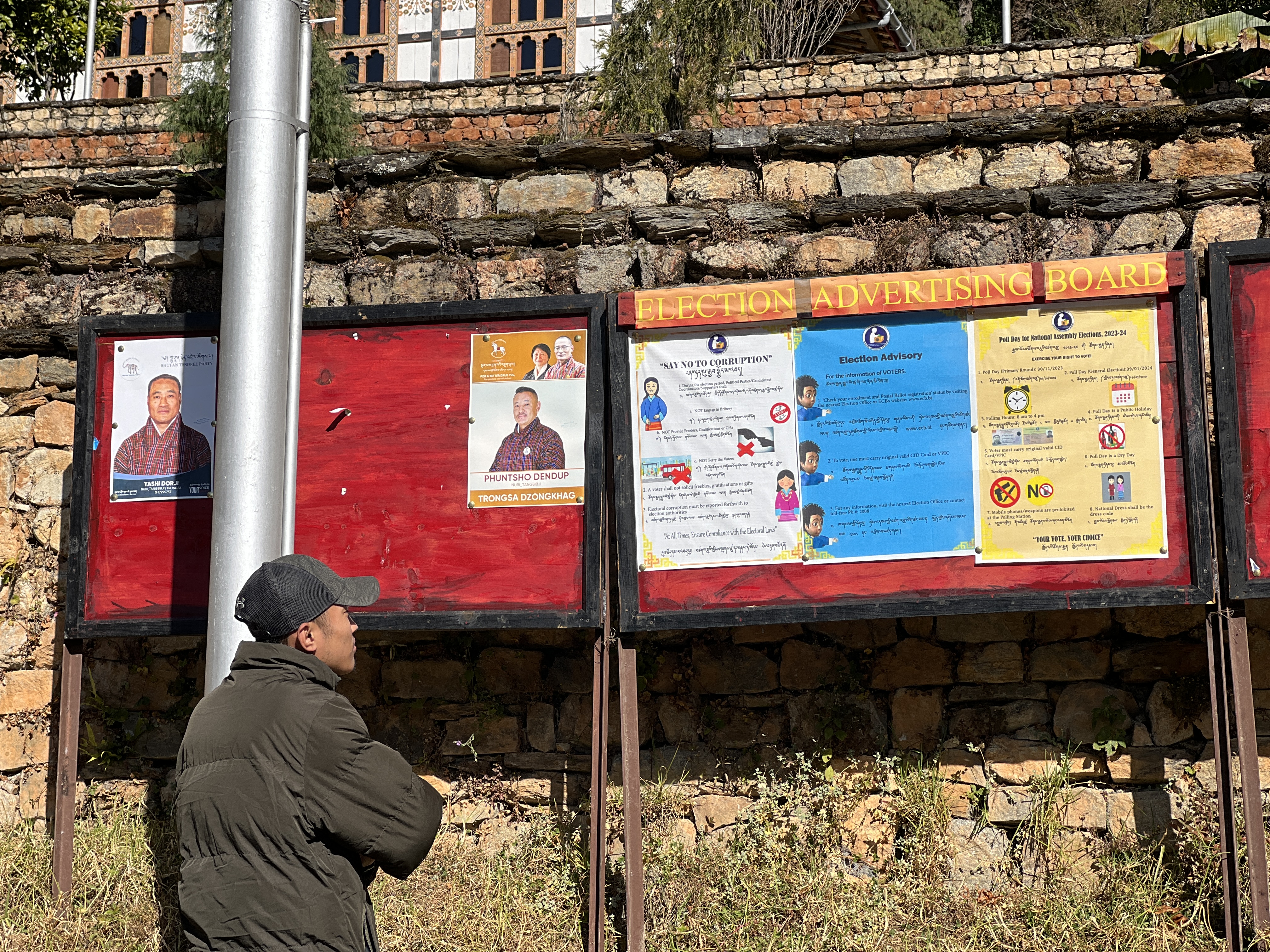
After the structural reform came the transfer of skills. “We invested a lot in training local officials on good governance,” Giron says.
The SDC left Bhutan in 2016. At that time, the country was building up its anti-corruption authority and judicial system. Helvetas stayed on. “With its experience in democracy, Switzerland was a role model for Bhutan, especially in terms of citizen participation,” country director Pem explains.
In the past few years, Helvetas has worked to establish citizen participation in practice. It has helped set up community organisations with different responsibilities in the villages, such as water use, road maintenance and tourism.
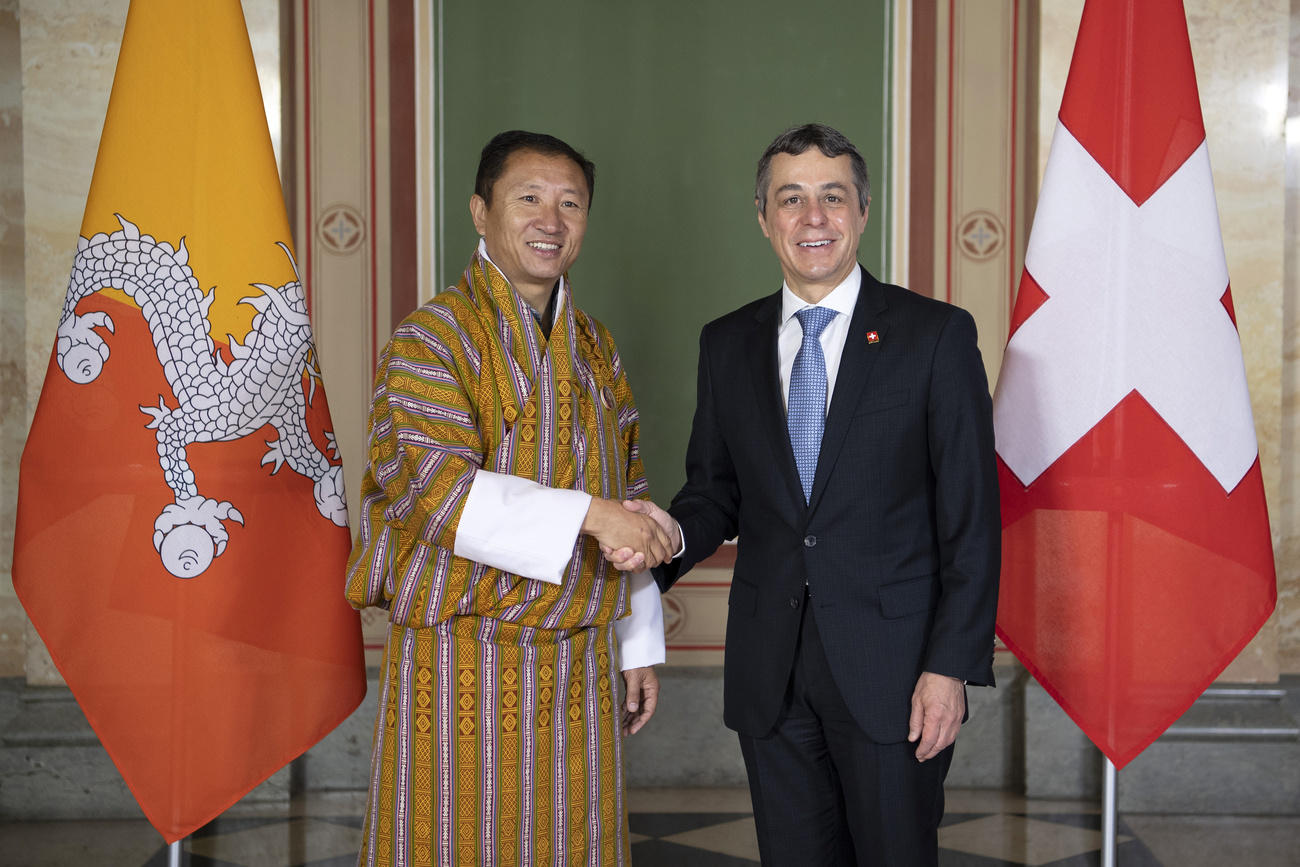
More
Switzerland and Bhutan discuss boosting ties
Democratic challenges
Despite the many positive developments, democratic culture is not yet fully engrained in Bhutan. Media censorshipExternal link has come under international criticism. The main newspaper belongs to the state and there is no law guaranteeing editorial independence of the state-run Bhutan Broadcasting Service.
Religious minorities also have a hard time in Bhutan, which seeks to preserve its identity as the only Tibetan-Buddhist nation state in the world. The dearth of women in leadership positions is also criticised.
There are also only a handful of civil society organisations (CSOs). Most of these, Giron explains, focus on providing community services. “The government wants to limit the number of CSOs, believing they could spur unrest.” So it mainly allows organisations that do not take a political stand but look after disadvantaged or vulnerable groups.
Disaffected youth
Giron says that while most of society is not calling for more democratic participation, this is not so for younger people. They want greater self-determination, he says. But it is precisely this generation that is leaving the country in record numbers.
Despite gross national happiness, discontent among young people is high, driven in large part by a lack of jobs. Youth unemployment stands at 29%.
The journalist and activist Namgay Zam also sees a trend among young people to want to break with the strict hierarchical order of Buddhist society. Bhutan’s economy is also struggling, partly because the tourism sector has still not recovered from the Covid-19 pandemic.
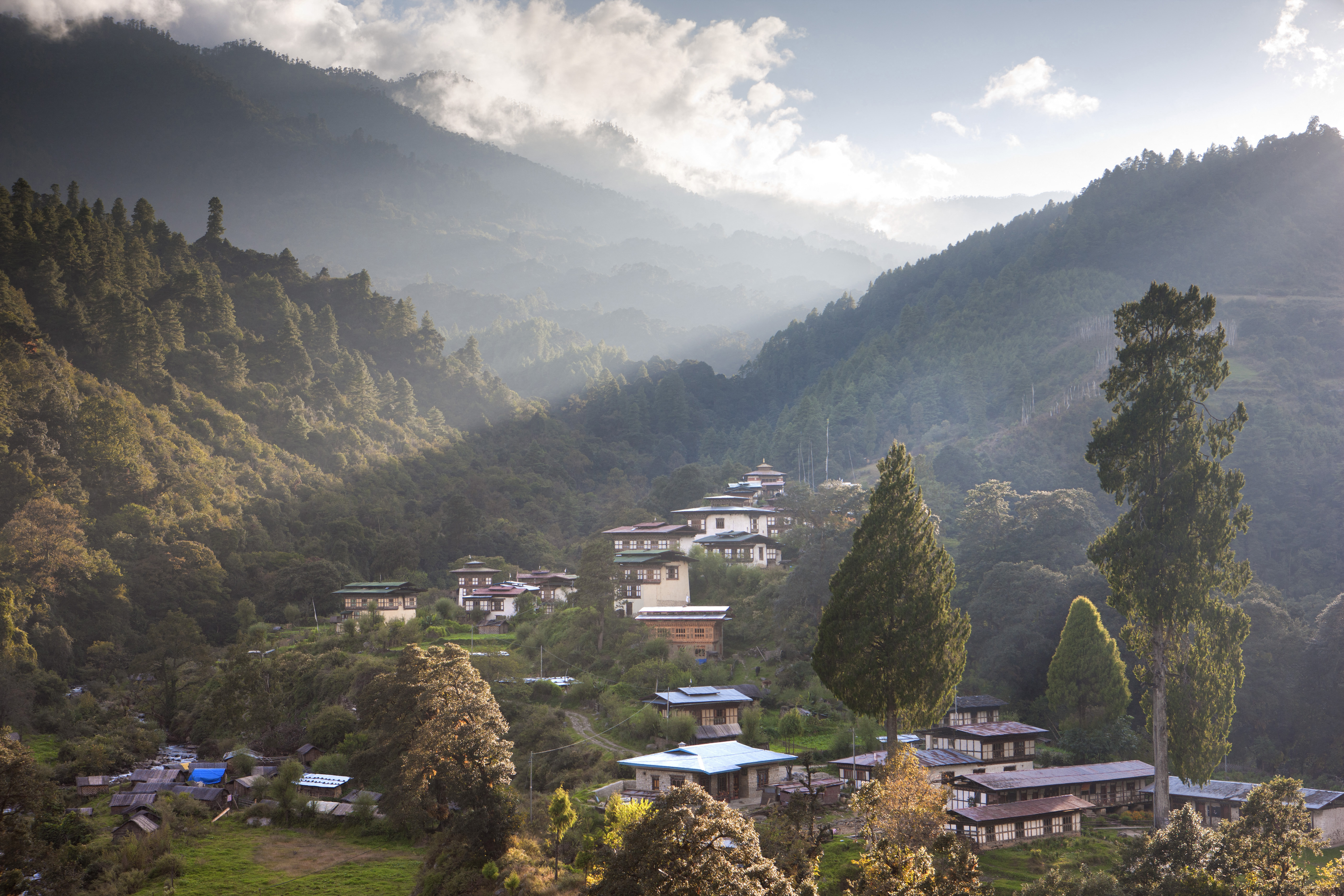
‘We’ve done our job’
Despite these challenges, Helvetas will be withdrawing from Bhutan after 50 years in the country. All projects are to be concluded by the end of 2025.
“We’ve done our job,” Giron says. “Bhutan has seen huge development in recent years and our support is no longer absolutely necessary.” The United Nations recently upgraded Bhutan from a “least developed” to “middle-income” country.
Pem and the former Helvetas team in Bhutan will carry on the Swiss NGO’s work with a new company called LEAD+. This organisation, which is Bhutanese-owned, will strive to strengthen civil society, local governance and community-run tourism by providing advisory services.
Pem sees the Swiss departure as the next chapter in a success story – “despite all the nostalgia”.
“Leaving also means putting responsibility in local hands,” she concludes.
Edited by Benjamin von Wyl. Adapted from German by Julia Bassam/ts
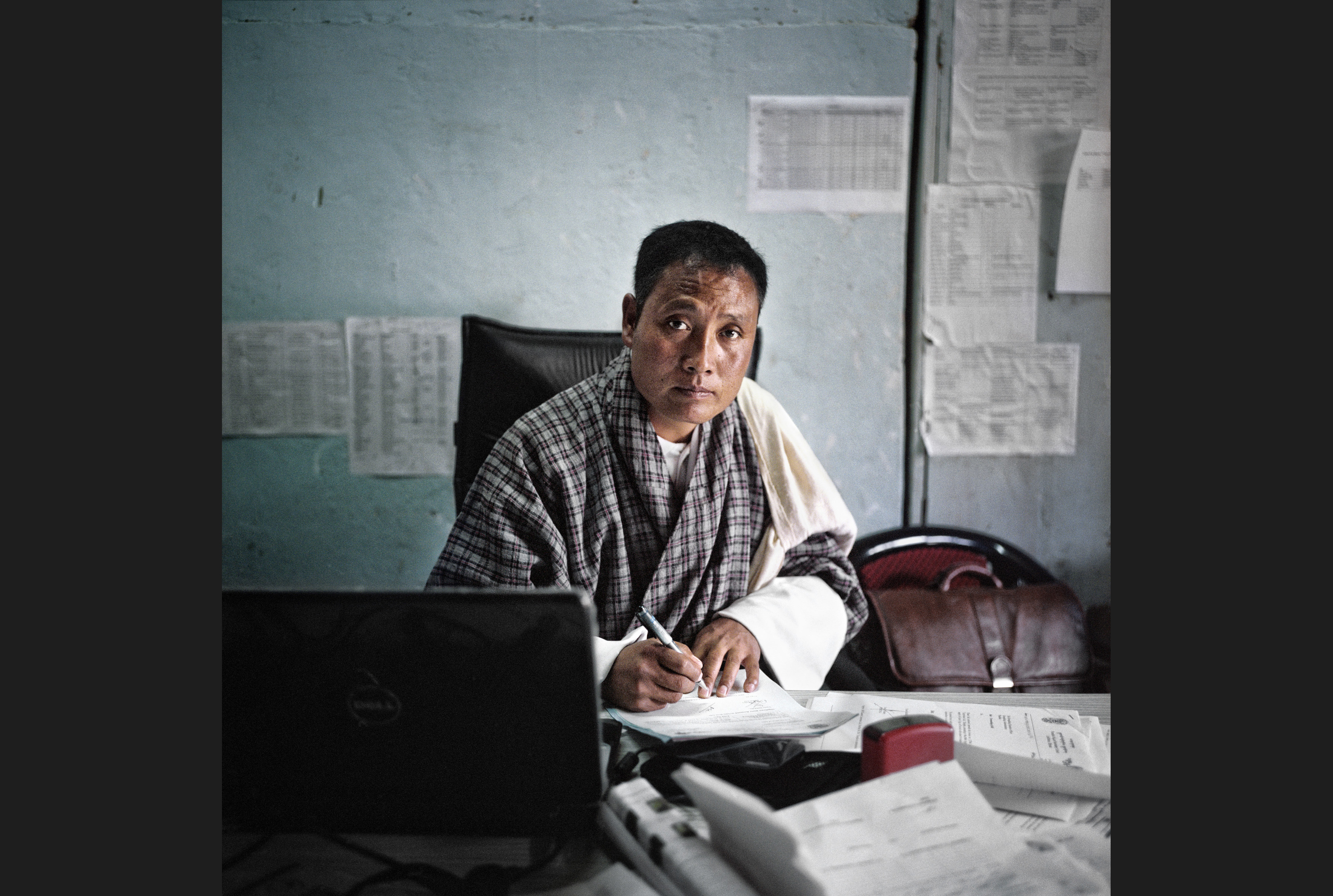
More
Bhutan – turning happiness into money

In compliance with the JTI standards
More: SWI swissinfo.ch certified by the Journalism Trust Initiative















![The four-metre-long painting "Sonntag der Bergbauern" [Sunday of the Mountain Farmers, 1923-24/26] had to be removed by a crane from the German Chancellery in Berlin for the exhibition in Bern.](https://www.swissinfo.ch/content/wp-content/uploads/sites/13/2025/12/01_Pressebild_KirchnerxKirchner.jpg?ver=f05a5a9c)














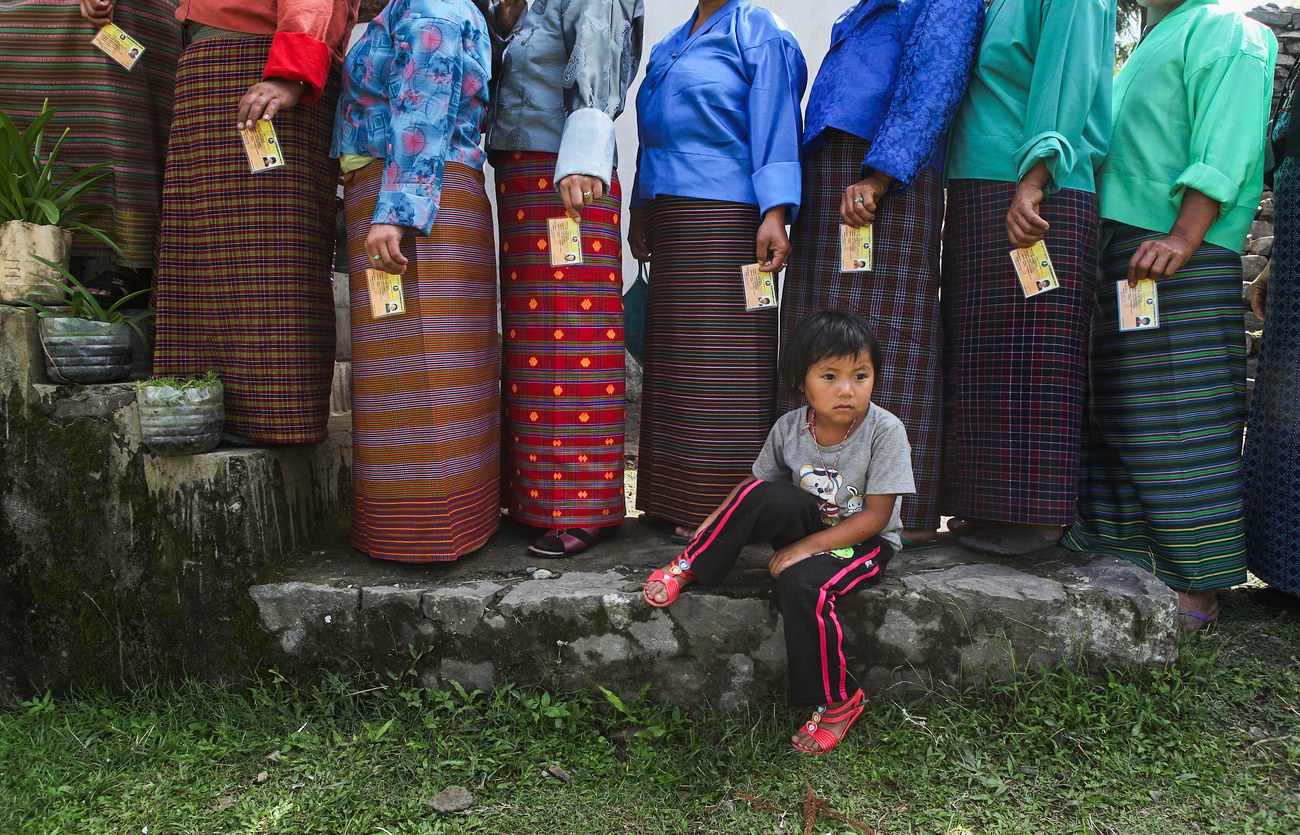
You can find an overview of ongoing debates with our journalists here . Please join us!
If you want to start a conversation about a topic raised in this article or want to report factual errors, email us at english@swissinfo.ch.